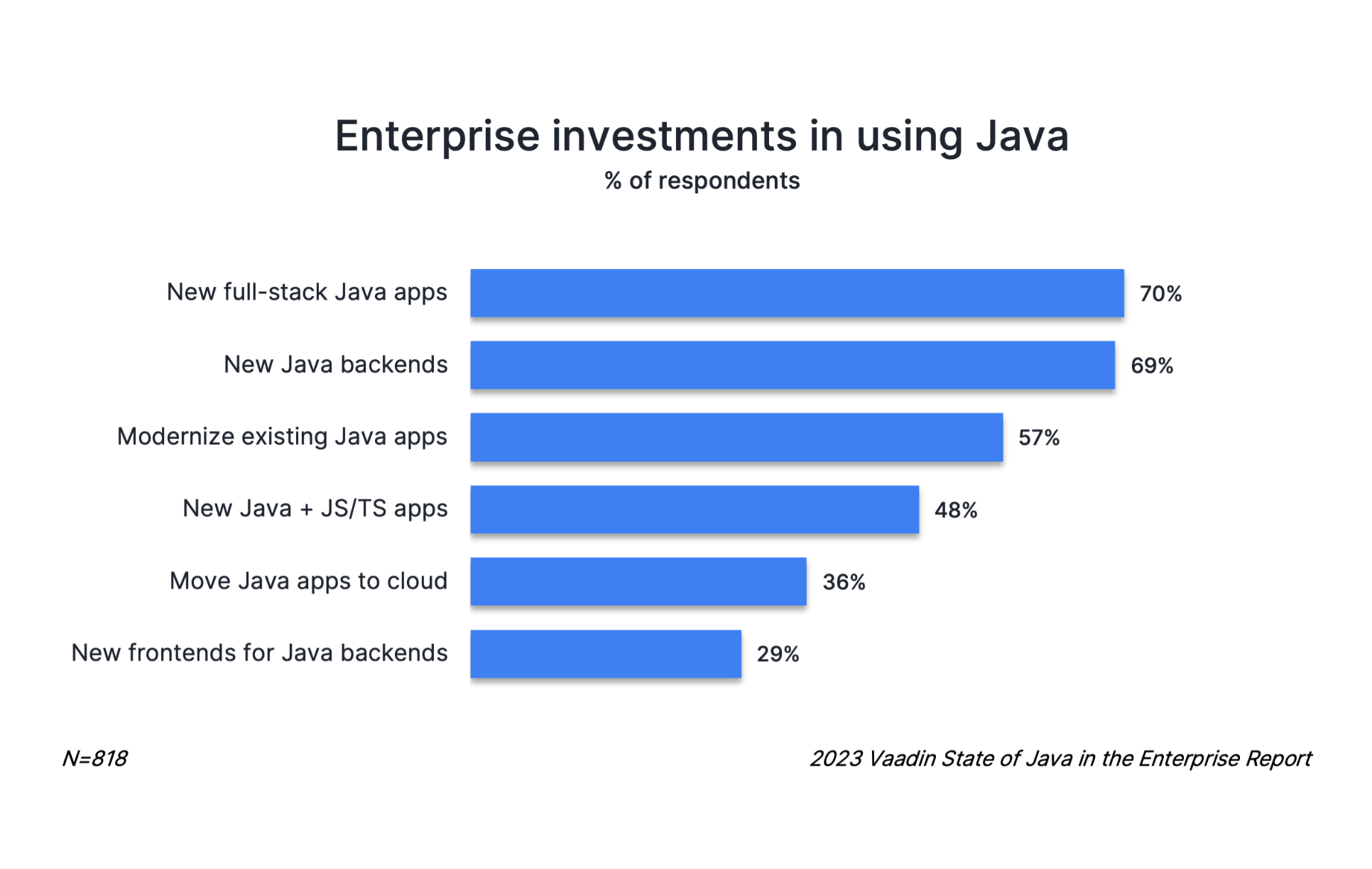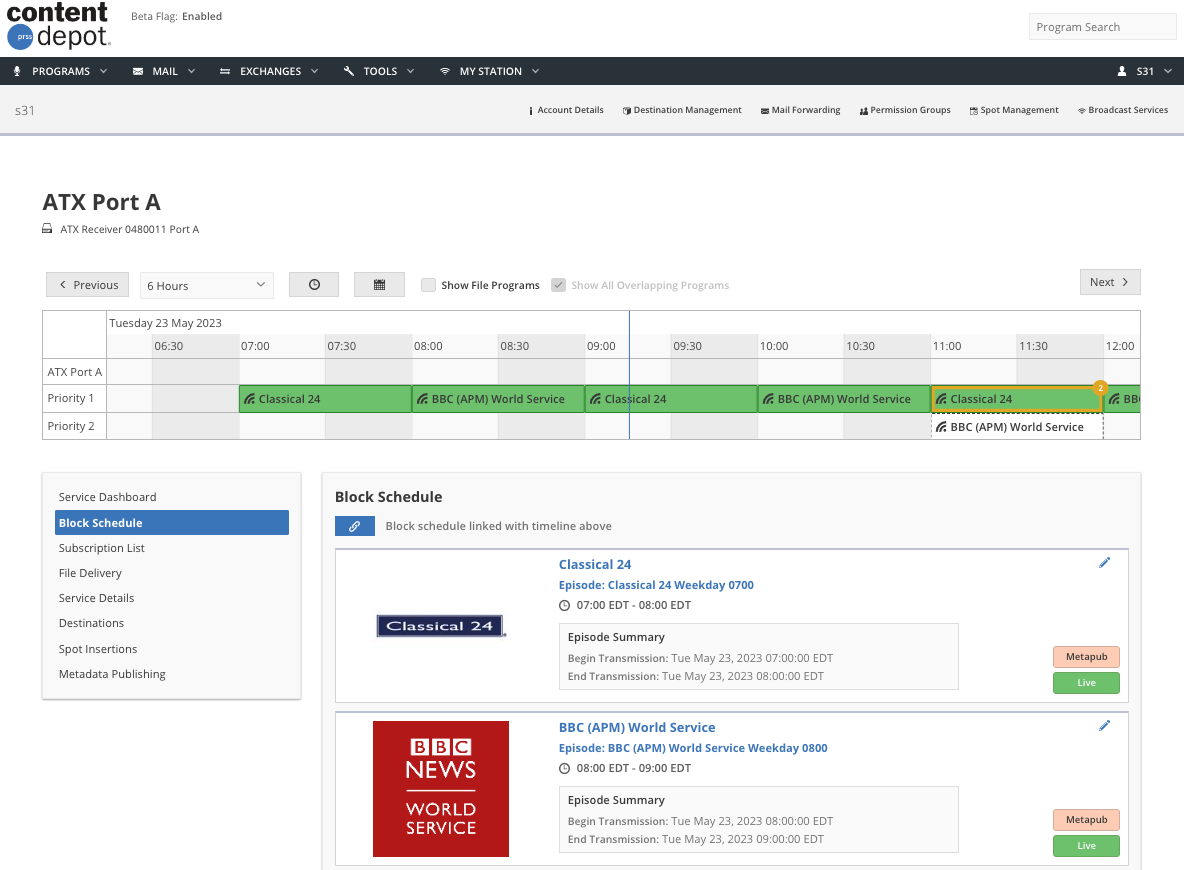The enterprise environment presents a distinct set of demands: scalability to manage large workloads, extremely robust security, and seamless integration with legacy systems.
Within this distinct set of demands, Java offers compelling advantages to the enterprise. In this article, we explain why developers should consider using Java for enterprise applications – and include a few concrete examples of where Java is used in the enterprise.
How is Java used in enterprise applications?
Java has been a popular choice for enterprise software development since the early 1990s, when it was created by Sun Microsystems. It is used to build core components across all tiers of an enterprise application – from the web front end, to business logic, and integration layers.
Now under the Oracle umbrella, Java enterprise applications are built both on Java as is, and through using Java as part of larger toolsets and frameworks.
Where in the enterprise is Java used?
Java’s platform-independent nature and its scalability make it well suited for the needs of large organizations and this relationship has continued over the decades. The flexibility of Java means it is used in many areas across large organizations, including:
- Web and application servers: Java for business is often used to build robust, scalable web and application servers. Organizations leverage Java-based servers for web apps, managing user sessions, and transaction volumes.
- ERP and CRM: Java's reliability is ideal for ERP systems that handle complex business processes, and for CRM solutions to manage customer interactions, sales, and services.
- Financial systems: Java's security makes it a backbone for banking applications, trading platforms, and risk management systems.
Java business applications also readily integrate with frameworks like Hadoop and Spark, enabling enterprises to analyze massive datasets for business insights.
Java at the cutting edge
Enterprise architects are using Java for microservices, building flexible, modular applications composed of smaller, independently deployable services (e.g., breaking down a monolithic e-commerce platform into inventory, payment, and shipping microservices).
Java is also finding a role in high-performance systems, where large organizations use Java to design and deploy applications that can handle high volumes of transactions (e.g., a stock trading platform).
Finally, Java also has a unique role to play in rapid application development, as enterprises rely on Java to quickly launch enterprise applications to market.
For example, Vaadin’s Flow framework streamlines the creation of user interfaces and business logic using Java, so developers can focus on core functionalities rather than mundane low-level web development tasks.
Cloud-native Java
With each new update, Java adds new capabilities. Today, Java applications are transitioning towards cloud-native architectures. Java applications are increasingly deployed in public, private, and hybrid cloud environments – and across containers, Kubernetes, and serverless infrastructures.
In fact, the Vaadin 2023 Enterprise Java Report reveals a significant revival of Java as a key technology for cloud-native applications – with 70% of respondents investing in brand-new full-stack Java apps.
 Companies are not just investing in new Java projects but also updating their current Java systems for cloud integration, underscoring Java's enduring role in corporate software infrastructure.
Companies are not just investing in new Java projects but also updating their current Java systems for cloud integration, underscoring Java's enduring role in corporate software infrastructure.
Benefits of building enterprise applications with Java
What is it that makes Java so suitable for application development in the enterprise? It’s the way Java’s distinct qualities line up with the unique requirements of building applications in the enterprise environment.
1. Performance and stability
Java's suitability for enterprise environments comes in large part due to its performance, scalability, and ease of maintenance.
The Java Virtual Machine (JVM) is highly optimized for performance. Modern JVMs use just-in-time (JIT) compilation, which compiles Java bytecode to native code as the application runs, optimizing performance dynamically based on actual usage patterns.
It is secure, too. Type checking during compilation catches potential errors early on, while Java’s structured error management makes programs less prone to crashes. Sandbox-like restrictions in the JVM prevent malicious code from causing harm.
The language's stability is supported by a robust ecosystem, which includes an enormous developer base, community support – and, indeed, enterprise support from enterprise giant Oracle. Java has long-term support versions that receive updates for many years, ensuring stability and security over time.
2. Variety of libraries and frameworks
Java benefits from a vast ecosystem of libraries and tools that facilitate rapid development of scalable and secure enterprise applications. This means that there are often pre-written solutions to common problems that can be used to develop applications quickly.
A variety of frameworks is another core benefit, which includes, for example, Spring Framework, used for building enterprise-level applications, web services, and microservices. Vaadin Flow is another popular framework for Java, helpful for quickly building web apps using pure Java.
3. Run anywhere
As they say in Java, "write once, run anywhere". One core Java strength lies in its compiled bytecode, which executes on any system with a Java Virtual Machine (JVM). This means that code written on one platform functions seamlessly on others.
Large organizations are often a mishmash of expansion, including complex mergers and acquisitions. That is reflected in enterprise IT, where legacy systems are common, spread across many applications.
For large enterprises, it just gives added flexibility, reducing development costs and time to market by eliminating the need for platform-specific builds. It enhances application reach across diverse operating systems – and across the web.
4. Scalability
Java's portability across different platforms without needing platform-specific modifications enables easy deployment on various operating systems, contributing to scalability.
Equipped with sophisticated garbage collection mechanisms, Java can optimize memory management, thereby enhancing scalability. This automation in reclaiming memory, targeting unused memory spaces, helps in averting memory leaks and boosts performance when an enterprise system is under significant load.
Moreover, Java's robust security model, including bytecode verification and class loaders, ensures secure execution, making it a preferred choice for developing secure enterprise applications.
Examples of Java enterprise applications
Before we consider enterprise applications, consider two of the world’s most popular – and massive – consumer apps. Minecraft stands as a widely recognized video game developed with Java, while Spotify, the renowned music streaming platform, utilizes Java for its web application's operations, including logging, stabilization, and data transfer.
Amazon is also known to use Java extensively across its e-commerce platform, and both SAP and Oracle's ERP systems often utilize Java for comprehensive business process management.
Rockwell Automation uses Vaadin’s Java framework to support its manufacturer operations management (MOM), and the company recently migrated from Vaadin 7 to a newer version.
NPR (National Public Radio) has for many years used Java to support ContentDepot, a popular platform that distributes NPR content to a vast network of radio stations around the United States.

A screenshot of Content Depot's user interface, a web app that distributes NPR content to radio stations across the United States.
Build modern enterprise applications in 100% Java with Vaadin
Already familiar with Java and looking to rapidly build modern, robust, and user-friendly enterprise web applications? Vaadin might be the perfect solution. Our powerful Vaadin Flow framework offers a streamlined, secure approach to web development – using Java.
Vaadin Flow allows you to use your Java skills to develop both the front end and back end of your web application. No need to juggle multiple languages and frameworks. Vaadin logic resides primarily on the server, enhancing security and minimizing the attack surface of your application.
With Vaadin handling much of the complex web development work, you can concentrate on the unique needs of your enterprise application. Vaadin applications are designed to scale gracefully, handling demanding enterprise use cases.
Ready to give Vaadin a try? Try our Quick Start tutorial or start building a new project at start.vaadin.com.